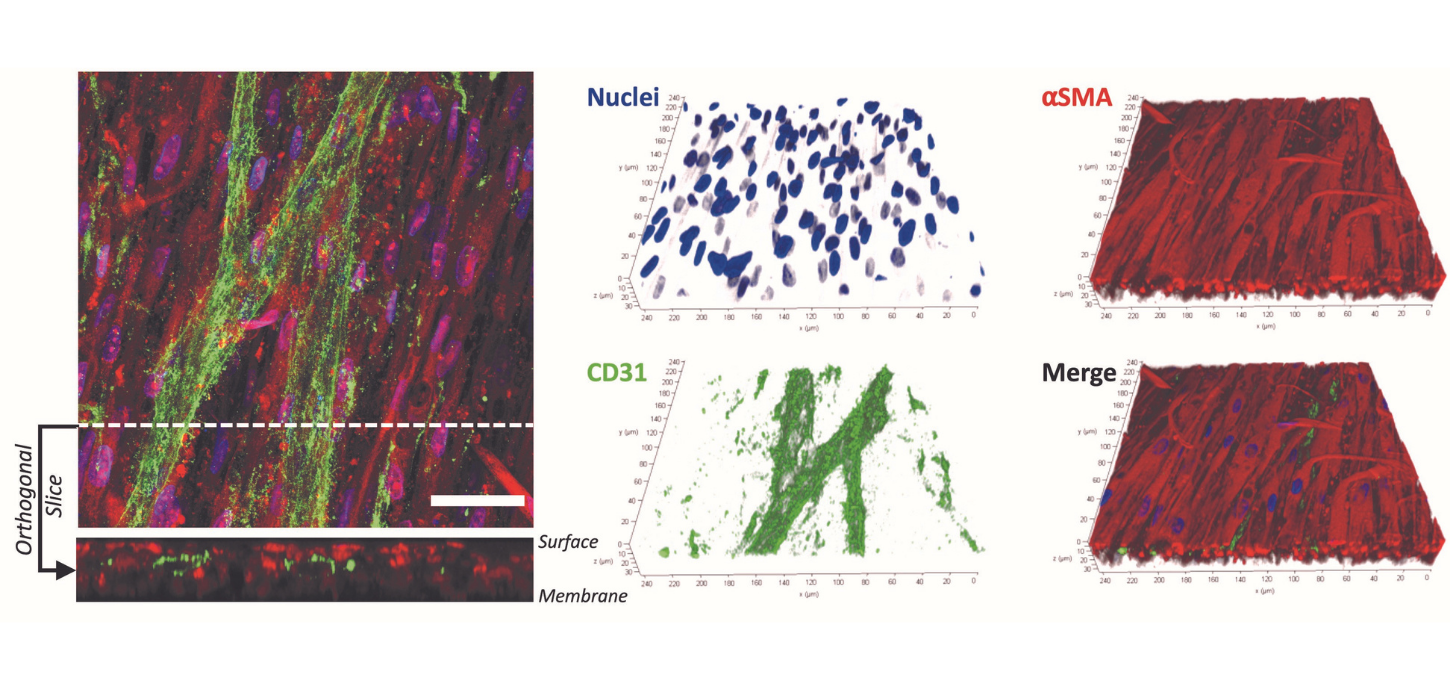
International team awarded grant to investigate immune-modulating biomaterials for endometrium tissue engineering
By Rachel Boutet
A new grant will look at the use of biomaterials for endometrium tissue engineering. The¥2,000,000, (approximately C$400,000) grant was awarded to the Faculty’s professor Paul Santerre (cross-appointed to the Institute for Biomedical Engineering) and his former PhD student, Xiaoqing Zhang, now a faculty member at Binzhou Medical University in China, who are co-PIs on the grant.
The five-year grant could have significant implications on a woman’s child-bearing years. Many women experience intrauterine adhesion, a condition when scar tissue accumulates between the inner walls of the uterus, causing the walls to bind together. The root cause of this condition is chronic inflammation of endometrial cells and abnormal wound healing after tissue damage occurs. This often results in infertility issues and failed assisted reproductive treatments.
Through the use of tissue engineering methods, Santerre and Zhang hope to promote the repair and regeneration of a patient’s endometrial tissues with the host’s own cells, which is critical to treating intrauterine adhesion and managing the host’s immune response.
“We have designed a biomaterial that coaches immune cells to orchestrate tissue regenerating cells to repair themselves and create new blood vessels,” says Santerre. “One of the key aspects of this material is controlling the foreign body response, so that the host cells think they are interacting with normal cells. We’ve cracked that nut – we’ve figured out the chemistry of the material that harnesses immune cells in order to direct them to assist other cells important for self-repair.”
Santerre says his experience with oral soft tissue engineering, specifically gingival tissue regeneration, will be helpful with this research. The oral cavity and its unique challenges have a lot of similarities to the vaginal cavity area, as both contain highly blood perfused tissues and are areas prone to infection. As a result, similar materials can be used to address this women’s health issue.
“This grant is a great example of the biomaterials research that happens in the Faculty of Dentistry,” he says. “We’re able to use key elements of our research to address an important issue affecting many women.”
As part of this international collaboration, students will go back and forth between the two institutions over the next five years. At the Faculty of Dentistry, the focus will be on learning how to process materials and generate micro blood vessels in a tissue. The students will take those learnings and work with Zhang at Binzhou Medical University on how this can be applied to intrauterine adhesion.
The hoped outcome of this research is to bring better quality of life for women and ultimately change their ability to plan for a family.
“There is currently no great solution to these types of problems,” says Santerre. “Our hope is this project will result in a resolution of a very chronic problem.”
Santerre also notes there is no specialized area that has studied infection management affiliated with biomaterials and implants more than that undertaken by the dental science community. He hopes that in the future, the learnings from this research will lead to another grant looking into managing microbial infection challenges in these sites of the female anatomy.
Photo: New blood vessels generated within a bed of the fat stem cells that were regenerating soft tissue. (Credit: Jeremy Antonyshyn, The Journal of Cardiovascular Surgery, V. 61 No. 5)